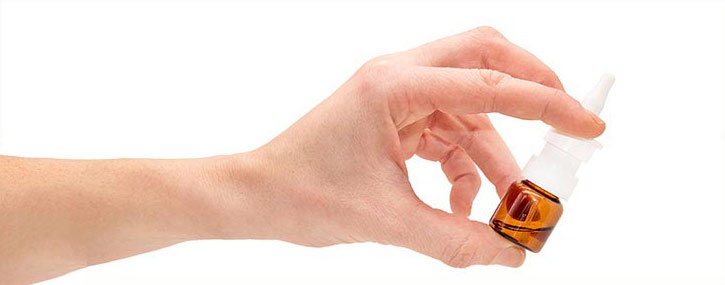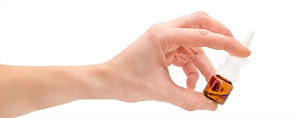A Top Treatment Option for Nasal Allergies in Atlanta, GA
Learn More About Treatment Options for Nasal Allergies in Atlanta, Conyers, & Lawrenceville, GA. Our Board Certified Allergists Provide an Overview of Nasal Sprays for Fast & Effective Allergy Relief. Interested in Our Services? Please Contact us Today to Book an Appointment. We Have 3 Convenient Locations Near You in Atlanta, Lawrenceville & Conyers, GA!


Spring can be hard-time for allergy-sufferers. Allergic rhinitis, commonly known as hay fever, causes inflammation of the nasal passages and can have adverse effects on your quality of life this time of year. Symptoms such as sneezing, itching, nasal congestion, runny nose, and post-nasal drip interrupt work, play and sleep. Oral allergy medications such as antihistamines help with itchy nose, sneezing, watery eyes, and post nasal drip but unfortunately they do not help with one of the most trouble symptoms…congestion! Did you know that nasal sprays are available in various forms and are used to help treat virtually all of your allergic rhinitis symptoms? Below is a board certified allergist’s review of various nasal sprays that can provide you substantial relief this allergy season.
Nasal irrigation and saline sprays — Nasal irrigation or spray with saline (salt water) is useful for helping nasal drainage and congestion and is virtually free of side effects. Saline helps by rinsing out allergens and irritants from the nose. Saline also promotes healing and restores normal flow to your sinus. It can be used before application of medicated nasal sprays to get a better effect from the medication as well. A variety of devices including syringes, Neti pots, and rinse bottles may be used to perform nasal lavage. It is important to remember to always use distilled water and not water from your tap if you use these devices
Nasal glucocorticoids — Nasal steroids are the first-line treatment for the symptoms of allergic rhinitis and have been proven scientifically to help most patients with allergies. These drugs have few side effects and dramatically relieve symptoms of most forms of nasal allergy. Symptom relief may be noticed on the first day of treatment with nasal steroids but their maximal effectiveness is noticeable in the order of days to weeks. For this reason, nasal steroids are most effective when used daily before and during your allergy season. Some nasal steroids are available over-the-counter (sample brand names: Flonase, Nasacort and Rhinocort Allergy). Flonase Sensimist is different from traditional Flonase because the aqueous solution is delivered as a gentle mist and is alcohol and scent-free. Qnasl is a prescription nasal steroid that is a dry aerosol powder. This dry spray is a good option in those that cannot tolerate aqueous solutions. Omnaris, Zetonna, Nasonex, and flunisolide are other prescription nasal steroids. Studies have shown that nasal steroids are generally safe in those that have used them for years. The side effects of nasal steroids are usually minimal and may include an unpleasant smell or taste. Please be aware in some people nasal steroids may cause irritation, crusting, and bleeding of the nasal septum.
Nasal Antihistamines — Azelastine (brand names: Astelin, Astepro) and olopatadine (brand name: Patanase) are prescription nasal antihistamine sprays that work locally in the nasal passage to relieve the itching, sneezing, and runny nose but they do not relieve nasal congestion. Combined treatment with nasal steroids may provide greater symptom relief than use of either alone. These sprays start to work within minutes after use. The most common side effect with azelastine is a bad taste in the mouth immediately after use.
Combinations of nasal glucocorticoid and antihistamines — A prescription combination of the nasal steroid fluticasone and the nasal antihistamine azelastine (brand name: Dymista) appears to improve symptoms of allergic rhinitis by targeting all of the symptoms. The most common side effects are a bad taste, nosebleed and headache.
Decongestants — Nasal sprays that are decongestants are also available, including oxymetazoline (brand name: Afrin) and phenylephrine (Brand name: Neo-synephrine); however, these are NOT recommended for treating allergic rhinitis. Nasal decongestant sprays should not be used for more than 3 to 5 days at a time because they may cause a type of rhinitis called “rhinitis medicamentosa,” which causes the nose to have worsening rebound congestion. This condition can be difficult to treat.
Cromolyn — Cromolyn (brand name: NasalCrom) is an over the counter nasal spray that prevents the symptoms of allergic rhinitis by interfering with the ability of allergy cells to release natural chemicals that cause inflammation. This spray may also have a bad taste or cause nasal irritation.
Please contact one of our board-certified allergists call us or make your appointment at www.allergyinatlanta.com to help determine which nasal spray would be best to manage your allergy symptoms.

Additional Allergy & Asthma Services
▸ Allergy Shots
▸ Allergy Testing
▸ Asthma
▸ Bronchodilators
▸ Drug Allergy
▸ Food Allergy
▸ Insect Allergy
▸ Nasal/Sinus Allergies
▸ Pediatric Allergy
▸ Pediatric Asthma
▸ Skin Allergy
▸ Spring Allergies




